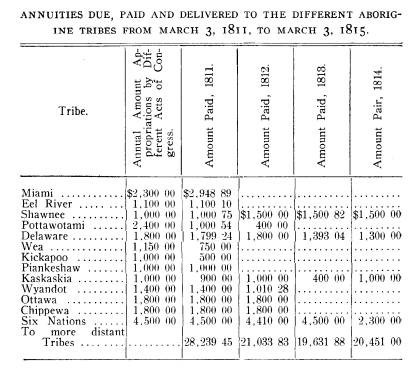Ohio History Journal
TARHE, THE WYANDOT
CHIEF,
AND THE
HARRISON-TARHE PEACE CONFERENCE.
LR. CHAS. E. SLOCUM, DEFIANCE.
It is the desire of this writing to add
somewhat to the men-
tion of Tarhe, the Wyandot Aborigine1
Chief, and to the men-
tion of the character of the Aborigines,
that appeared in the last
number of the QUARTERLY, although this
addition shows their
character different from that there
mentioned.
Tarhe grew to adult life in very
troublous times. He
was reared to savagery, and to
inebriety, like all Aborigine youths
of his range and time--first, in
addition to the habits of his
people, under the tutorship of the
French against the British and
later under the yet more savage policy
of the British against the
Americans. If he was born in the year
1742 (there is always
doubt connected with alleged parentage
and date of birth of the
children of earlier Aborigines) he was
eighteen years of age
when Sandusky, Detroit, Fort Miami (at
the head of the Mau-
mee River) and all of this western
country were surrendered
by the French to the British; and he was
thirty-three years old
when Lieutenant Governor Hamilton began
to send war-parties
of savages from Detroit, with British
outfittings and leaders,
through Ohio, Pennsylvania and Kentucky,
against American
settlers. We may rightfully presume,
therefore, that it was dur-
ing these many savage raids, which
continued throughout the
Revolutionary War, that Tarhe, liberally
supplied by the British
and under their direction, demonstrated
to the British and to
his savage followers the worthiness of
his claim to their chief-
taincy. His tribe continued marauding
excursions as allies of
the British, with but little
intermission after the close of the
Revolutionary War, until General Wayne's
crushing defeat of
them at Fallen Timber.
1The writer desires to discourage the
parrot-like use of the mis-
nomer 'Indian' to designate an American
Aborigine.
(313)

